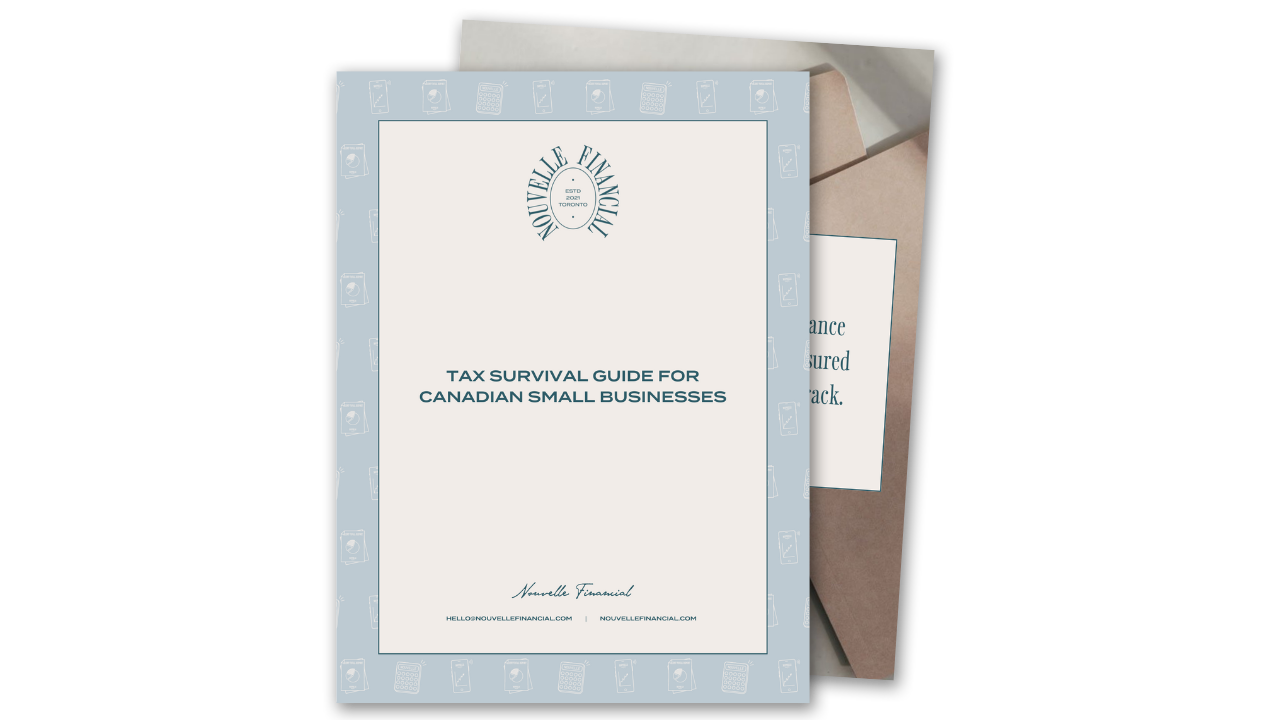
Incorporating: When is the right time for your business
In this post, we’ll discuss what you need to consider before deciding if incorporating your business is the right move for you. You’ve probably heard of people who’ve taken the leap, but it’s important to know that incorporating isn’t always as straightforward as it seems.
While lower tax rates are often a reason many business owners decide to incorporate, there are other things to think about—like being able to raise money for your business or keeping your personal assets separate from your business.
Whatever your situation, getting informed about incorporation is the best way to go. If there are legal reasons for incorporating, it’s a good idea to talk to a lawyer about that. In this post, we’ll stick to the tax side of things and cover four core topics:
-
What’s a Corporation in Canada?
-
The Perks of Incorporating
-
The Drawbacks of Incorporating
-
The Final Takeaway
New here?
I’m Amelia, a Toronto-based accountant dedicated to supporting women-owned businesses. My main purpose is to help you know your numbers, increase profits, and avoid mistakes when it comes to the numbers side of your biz.
Whether it’s taking it off your plate, helping you DIY with ease with my Sole Prop Starter Kit, or increasing your financial awareness—I’m here to make it simple.
Be sure to sign up for free monthly bookkeeping & tax reminders sent straight to your inbox to be sure you stay on track and never miss a deadline.
What’s a Corporation in Canada?
A corporation is its own separate legal entity, so at its core, you and the business are separate from each other. This means it can sign contracts and own property in its own name, apart from its owners. It also pays taxes on its own. On the other hand, as a sole proprietor, you and your business are the same (meshed together). There’s no separate legal entity, so any income your business makes gets taxed personally to you.
Since a corporation is a separate legal entity, it pays corporate taxes on its taxable business income. Shareholders (that’s you) own shares in the corporation and can be paid through salary or dividends. Both options impact your personal taxes.
Paying yourself a salary as the shareholder means you’ll need to register for a payroll number with the CRA, issue T4s (the same slip you’ve received in the past with regular employment income), and handle source deductions (things like CPP and EI). Dividends don’t require a payroll number, but you’ll need an RZ information account to issue T5s (a slip filed by your accountant to report the dividend declared).
Yes, corporate taxes are generally lower than personal taxes, but don’t forget—you still need to pay yourself! Whether it’s through a salary or dividends, there will be tax implications on your personal side. The benefit of the lower corporate tax rate is more like a tax shelter for money you don’t need to take out right away. Money left in the corporation (profit left in the business after you pay yourself) gets taxed at a lower rate than most personal income.
The Perks of Incorporating
There are a lot of perks to incorporating, with the main one being lower tax rates, as we mentioned earlier. If you're able to leave money in the corporation after paying yourself, that money gets taxed at a lower rate. Tax planning can be really helpful for businesses with fluctuating income. Incorporating lets you smooth out your pay, making those income spikes and drops easier to manage and helping you handle your personal taxes more effectively.
Succession planning is another reason small businesses incorporate. If you’re planning to pass your business on to your kids, incorporating lets you freeze the value of your shares. This way, your children can take over and keep growing the business without giving up what you’ve worked so hard to build.
You can also use the money in your corporation for retirement planning. By keeping extra income in the corporation, you’re taxed at a lower rate. When it’s time to retire, you can pay yourself from the corporation. Just remember, investment income in the corporation is taxed at a higher rate, so keep that in mind. If you're planning to use your corporation for retirement, it’s best to get advice tailored to your situation.
If you’re looking to raise capital for growth, incorporating makes that possible. Only incorporated businesses can sell shares. Plus, if your business qualifies, you could take advantage of the lifetime capital gains exemption. This means you might not have to pay capital gains tax on the sale of shares, up to a certain amount.
A big benefit of incorporating is limited liability, which generally protects your personal assets from business debts and legal issues. However, this protection isn’t always guaranteed. For example, if personal and business finances get mixed, the corporate veil can be pierced, and your personal assets could be at risk. So, while limited liability is a key benefit, it’s not that black and white.
One of the main reasons people incorporate is to take advantage of the Small Business Deduction. This allows Canadian Controlled Private Corporations (CCPCs) to pay a lower tax rate on the first $500,000 of active business income. But here's the thing: to get the full benefit, you need to leave the money in the corporation. If you’re taking out all the profits to pay yourself and cover personal expenses, you won’t really see those tax savings. You'll still be taxed at your personal tax rate.
The Drawbacks of Incorporating
Incorporating adds some extra layers of complexity to your business. Once you incorporate, you’ll need to deal with more compliance, like filing a T2 corporate tax return, issuing T4s and T5s, and possibly managing payroll cycles. Filing corporate tax returns is tricky, and we definitely don’t recommend trying to do it on your own. You’ll need a professional for this. This also means added costs, like for legal, accounting, and bookkeeping services. Your accountant can help run the numbers and figure out if the ongoing costs of incorporating are worth the potential tax savings.
In some cases, incorporating can actually lead to higher taxes on certain types of income. For example, investment income is taxed at a higher rate. So not all income inside the corporation will get that lower tax rate we mentioned earlier. As we’ve said before, it’s not a clear-cut decision.
The Final Takeaway
Incorporating isn’t something you want to rush into, and it’s best to get advice from both an accountant and a lawyer. Take the time to evaluate both your business and personal goals to see if it’s the right fit.
While there are advantages to incorporating, many people do it too soon and end up with higher costs and more paperwork without seeing the advantages. Plus, if your business hits a rough patch, any losses stay within the corporation.
When should you think about incorporating? If your business is making more profit than you need to cover living expenses, it’s a good idea to have a chat with your accountant.
What's Next
Be sure to sign up for free monthly bookkeeping & tax reminders sent straight to your inbox to be sure you stay on track and never miss a deadline.
Ready to take control of your books and taxes? Book a connection call with us today to learn how we can support you and your business.










